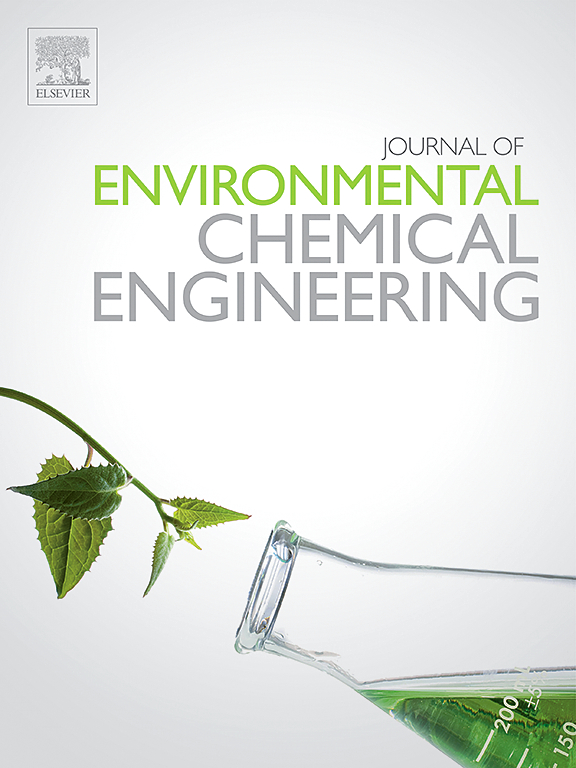功能化生物炭增强猪粪堆肥中抗生素和抗性基因去除的研究进展
IF 7.4
2区 工程技术
Q1 ENGINEERING, CHEMICAL
引用次数: 0
摘要
由于抗生素通常用于动物的生长促进和疾病治疗,相当数量的抗生素保留在猪粪(SM)中。SM的不当处理可能导致抗生素释放到自然环境中,导致抗生素耐药基因(ARGs)的产生,对生态系统和人类健康构成重大风险。生物炭(BC)是一种从生物质热解中提取的富含碳的多孔材料,已成为减轻SM堆肥过程中ARGs风险的有前途的解决方案。为了提高BC的吸附性能,功能性BC(物理、化学、生物或复合材料改性)引起了广泛的关注。本文综述了生物燃料的各种改性方法和性能改善机制,特别是环境友好型蚯蚓改性生物燃料。对比分析了改性BC对抗生素和ARGs吸附机理的差异,揭示了SM堆肥过程中生物降解对抗生素和ARGs的去除起着至关重要的作用。最后,该综述确定了当前的挑战,并概述了进一步研究的前景,以实现功能化BC在SM堆肥中抗生素处理中的更大作用,从而为更可持续和对环境负责的废物管理战略做出贡献。本文章由计算机程序翻译,如有差异,请以英文原文为准。
Functionalized biochar for enhancing the removal of antibiotics and resistance genes in swine manure composting: A review
Since the antibiotics typically employed for growth promotion and disease treatment in animals, a considerable quantity of antibiotics is retained in swine manure (SM). The inappropriate handling of SM may lead to the release of antibiotics into the natural environment, resulting in the development of antibiotic resistance genes (ARGs), posing significant risks to both the ecological system and human health. Biochar (BC), a carbon-rich, porous material derived from biomass pyrolysis, has emerged as a promising solution for mitigating ARGs risks during SM composting. To enhance the adsorption performance of BC, functional BC (physical, chemical, biological or composite material modification) has attracted widespread attention. This work presented a review of the various modification methods and performance improvement mechanisms of BC, especially the environmentally friendly earthworm-modified BC. The differences in adsorption mechanisms of antibiotics and ARGs by modified BC were compared and analyzed, revealing that biodegradation played a crucial role in the removal of these substances during the SM composting. Finally, the review identified current challenges and outlines prospective avenues for further investigation to achieve a greater role for functionalized BC in the treatment of antibiotics in SM compost, thereby contributing to more sustainable and environmentally responsible waste management strategies.
求助全文
通过发布文献求助,成功后即可免费获取论文全文。
去求助
来源期刊

Journal of Environmental Chemical Engineering
Environmental Science-Pollution
CiteScore
11.40
自引率
6.50%
发文量
2017
审稿时长
27 days
期刊介绍:
The Journal of Environmental Chemical Engineering (JECE) serves as a platform for the dissemination of original and innovative research focusing on the advancement of environmentally-friendly, sustainable technologies. JECE emphasizes the transition towards a carbon-neutral circular economy and a self-sufficient bio-based economy. Topics covered include soil, water, wastewater, and air decontamination; pollution monitoring, prevention, and control; advanced analytics, sensors, impact and risk assessment methodologies in environmental chemical engineering; resource recovery (water, nutrients, materials, energy); industrial ecology; valorization of waste streams; waste management (including e-waste); climate-water-energy-food nexus; novel materials for environmental, chemical, and energy applications; sustainability and environmental safety; water digitalization, water data science, and machine learning; process integration and intensification; recent developments in green chemistry for synthesis, catalysis, and energy; and original research on contaminants of emerging concern, persistent chemicals, and priority substances, including microplastics, nanoplastics, nanomaterials, micropollutants, antimicrobial resistance genes, and emerging pathogens (viruses, bacteria, parasites) of environmental significance.
 求助内容:
求助内容: 应助结果提醒方式:
应助结果提醒方式:


